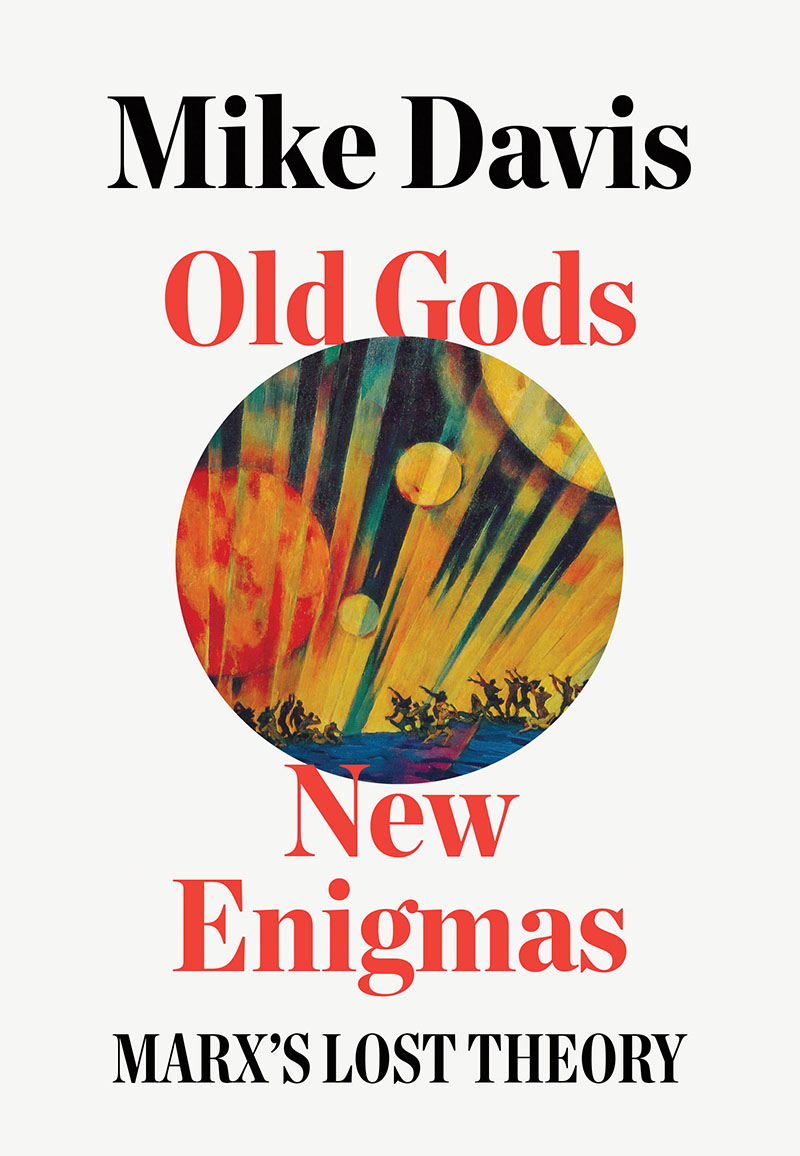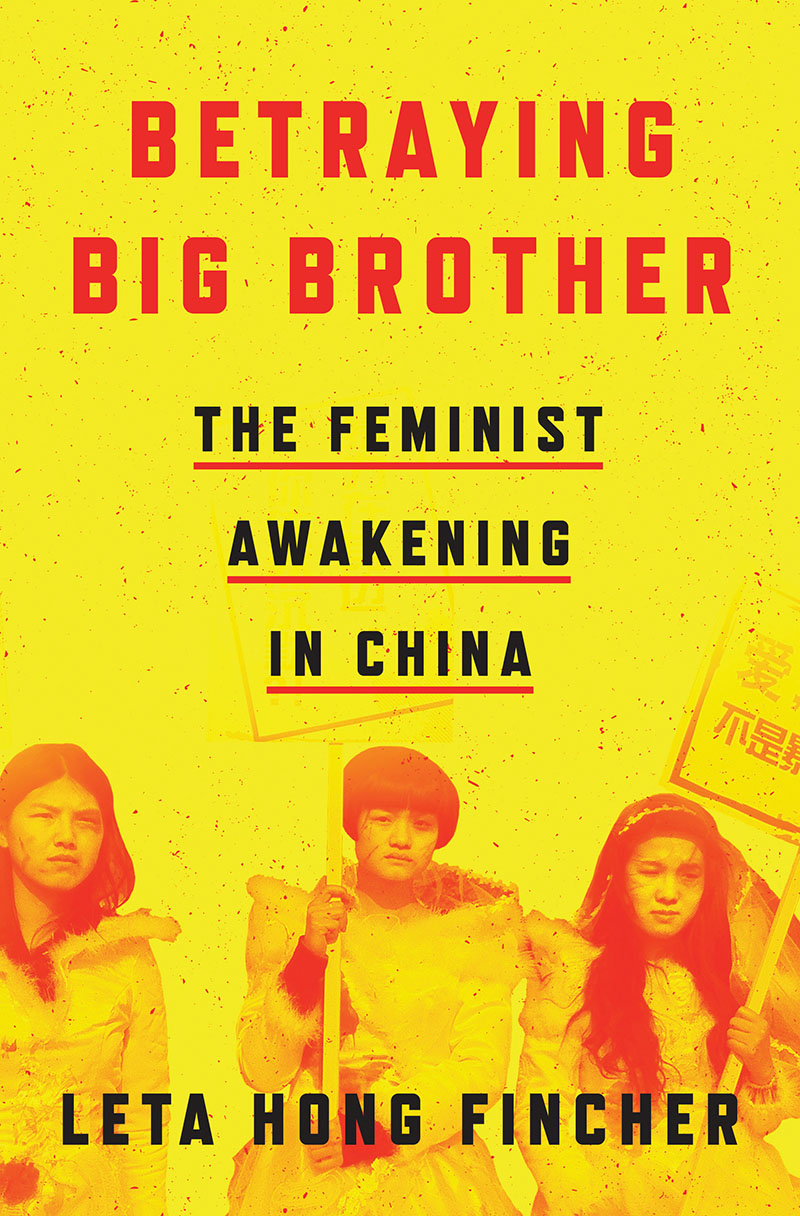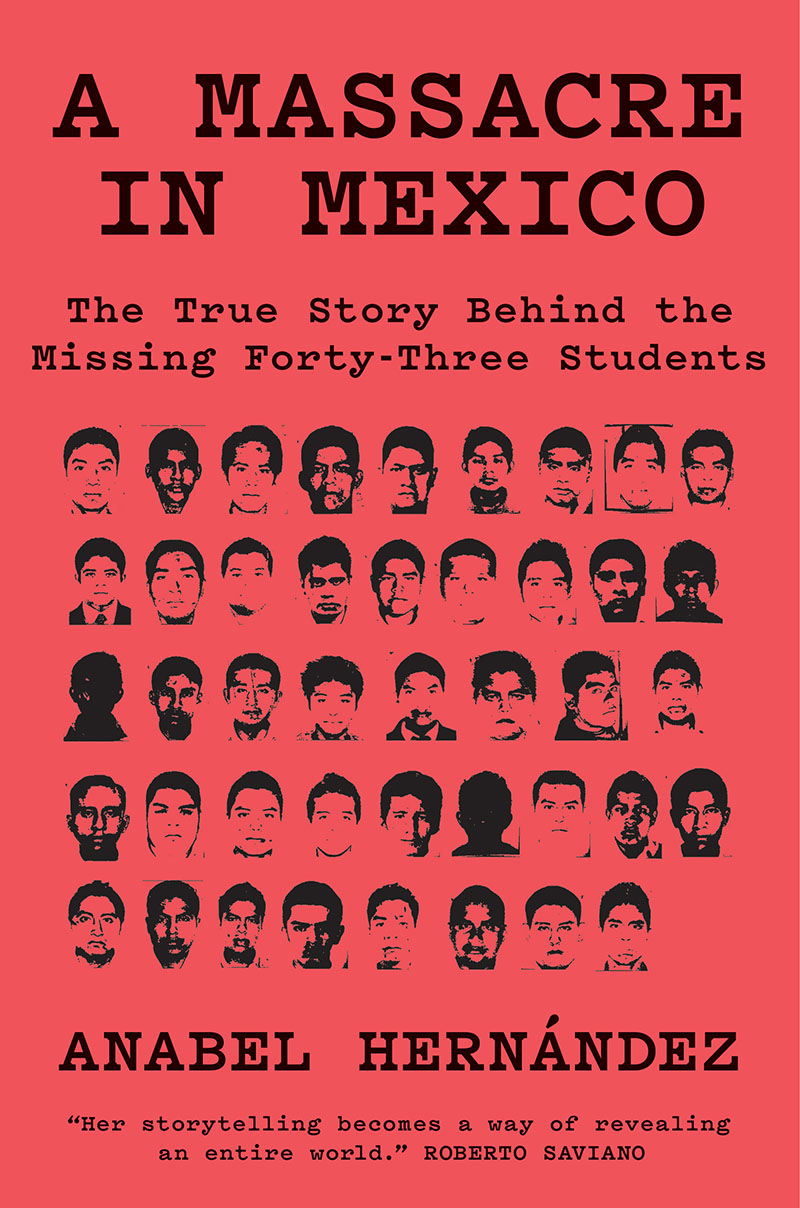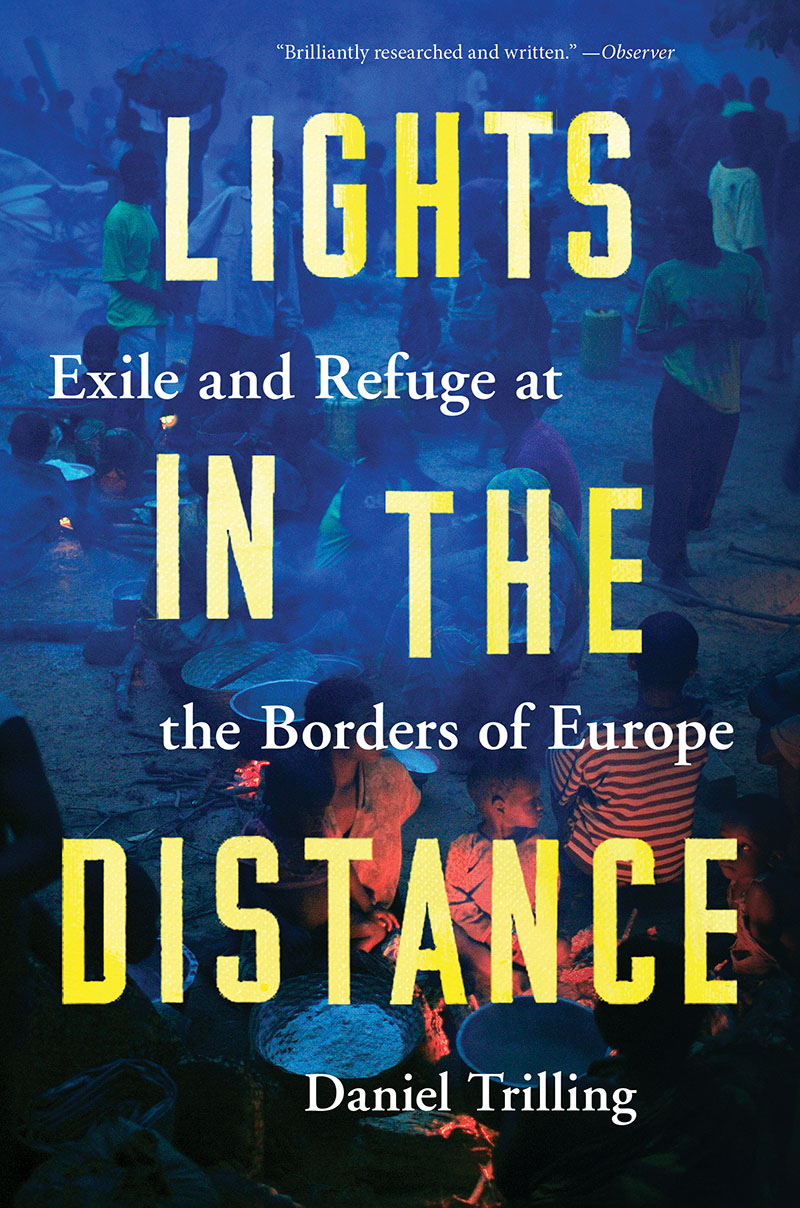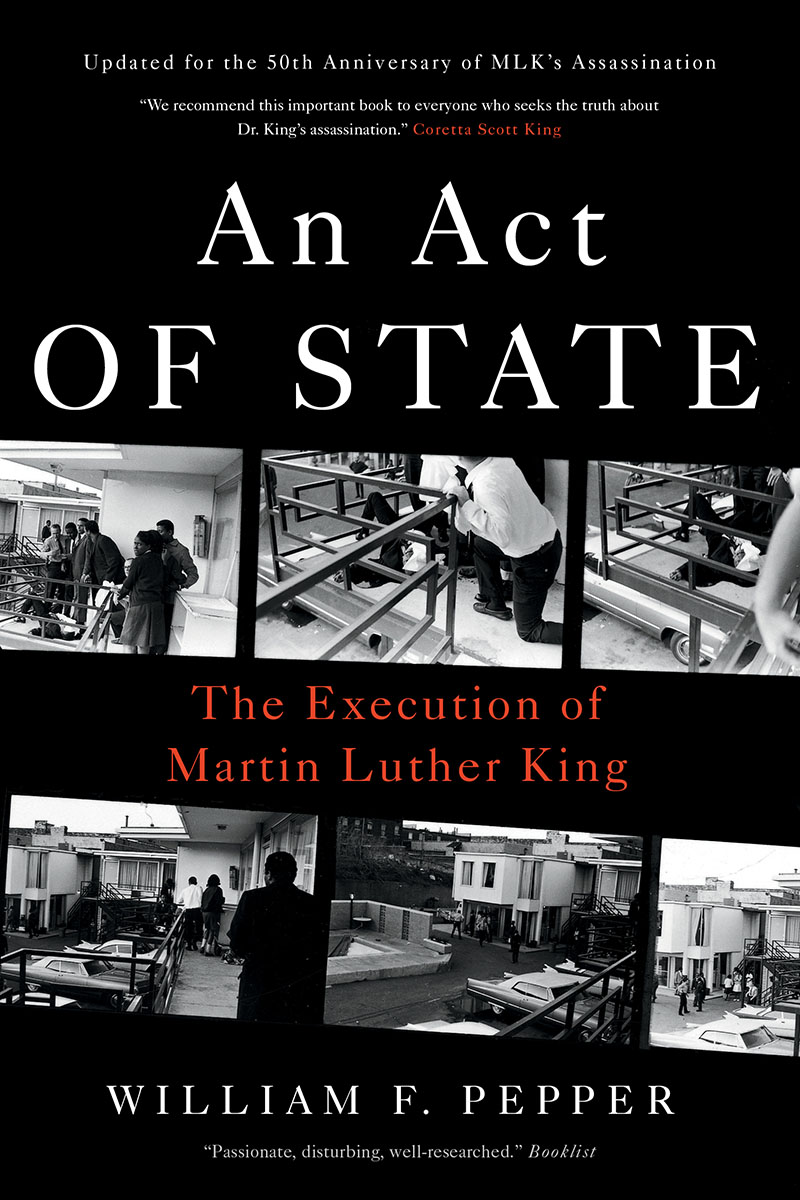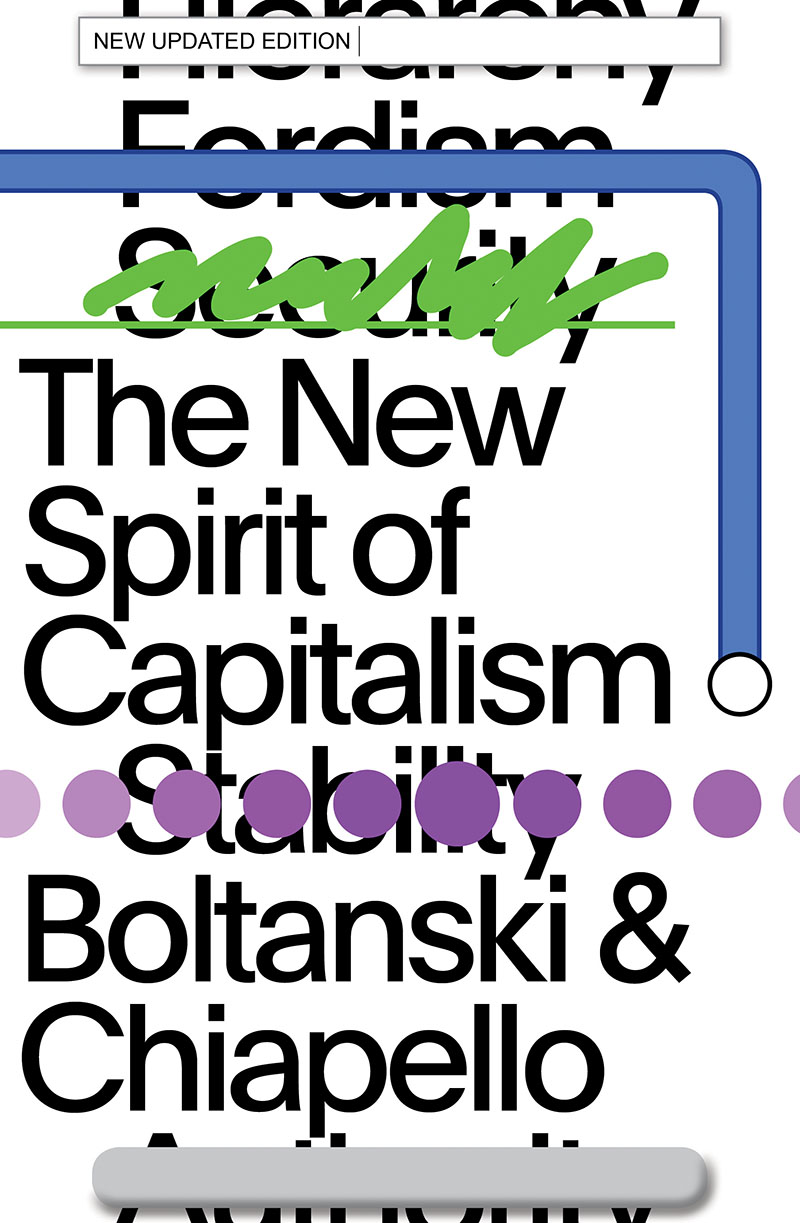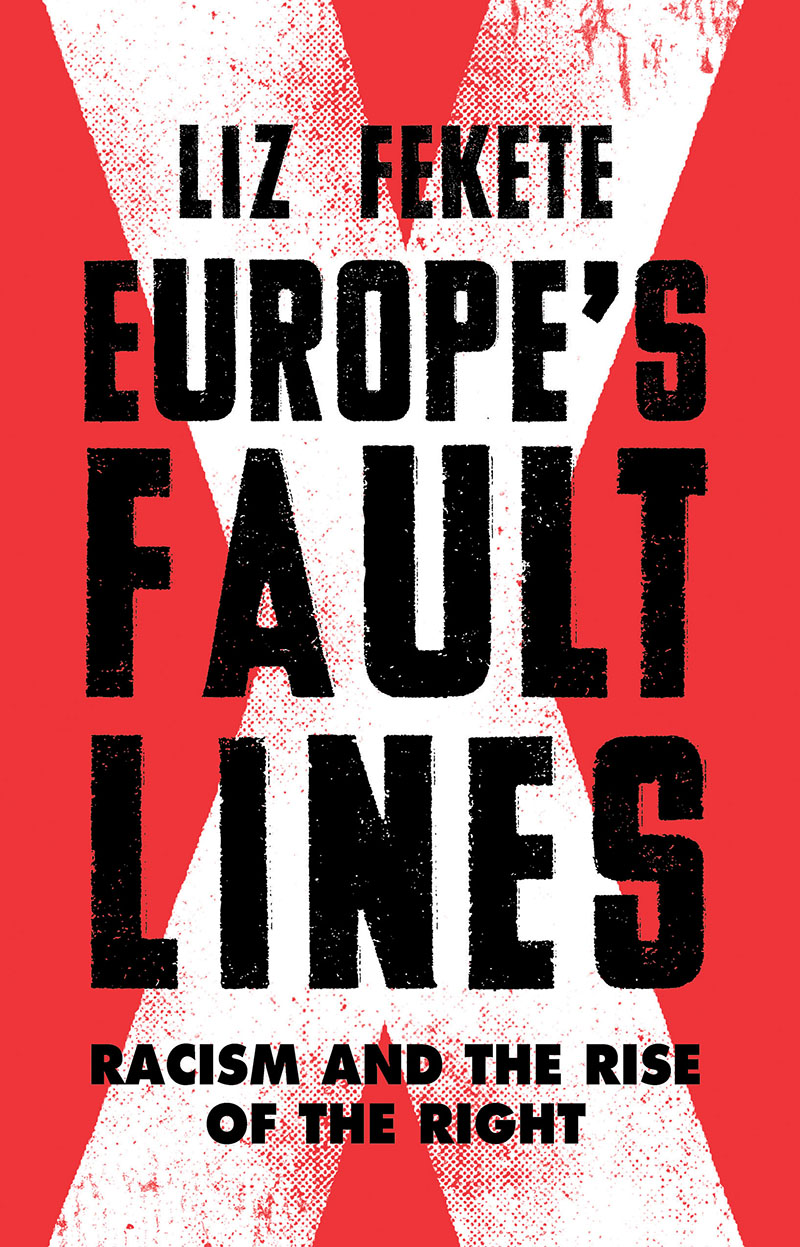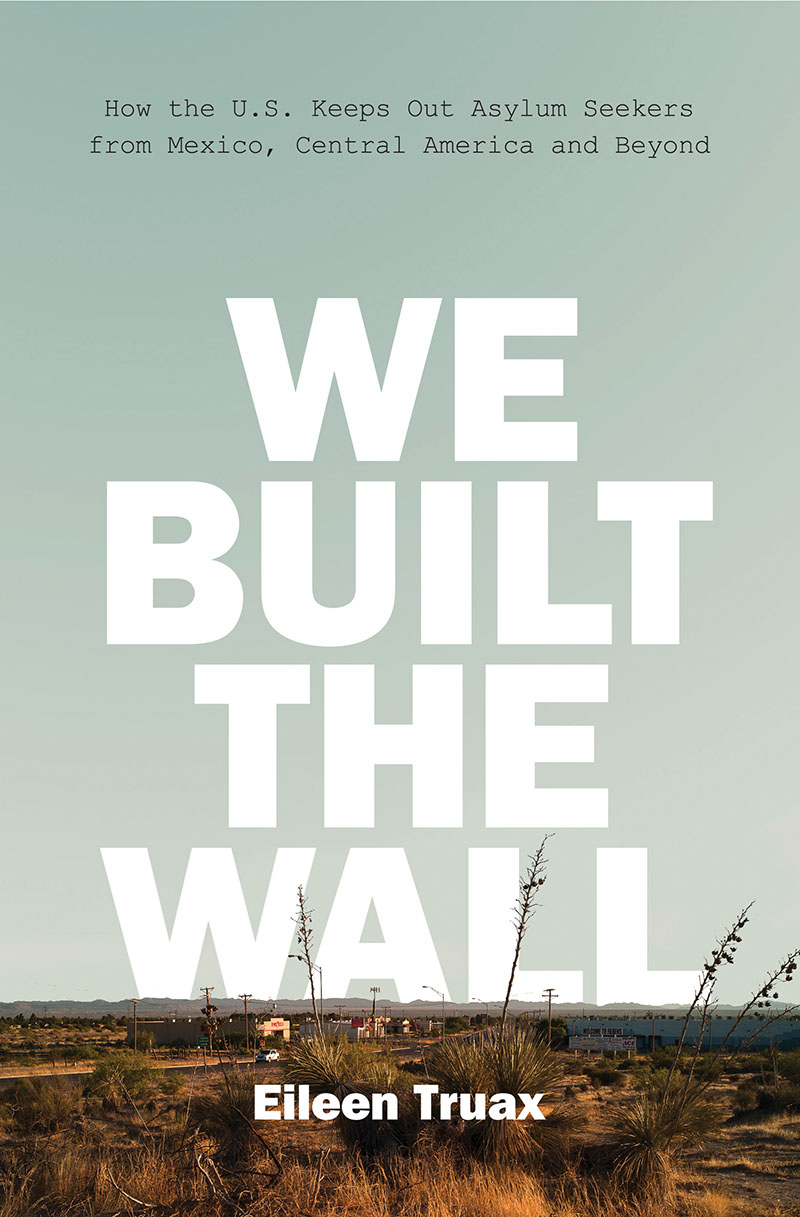Verso End of Year Highlights 2018

We present our 2018 publishing highlights: books that explore our current economic and political crisis, the stakes of global warming, the effects of increased financialization, the rise of right-wing populism, the long history of work, as well as the efforts of grassroots activists fighting for a better world.
See the guide below - split into sections such as Marx's 200th Anniversary, Climate Change, Politics of Technology, US and UK politics, Migration and Borders, Anti-Policing, Political Theory, as well as our 1968 anniversary titles.
UK POLITICS >>>
Economics for the Many, edited and with an introduction by Shadow Chancellor of the Exchequer John McDonnell, features contributions from the participants in his New Economics conferences, including Barry Gardiner, Ann Pettifor, Prem Sikka, and Guy Standing. It covers topics from housing, public ownership, and fairer international trading systems to industrial policy for the twenty-first century and how to tackle tax avoidance and regional imbalances. Together, the essays in this volume lay out a vision for a new economics, one that works for the many, not the few.
In this timely and provocative essay, Melissa Benn argues for a National Education Service. Like the NHS, the NES would provide the framework for a life-long entitlement to education: from early-years provision to apprenticeships, universities and adult education. It should be free at the point of delivery. It should nurture teachers and scholarship, moving beyond an obsession with exam results to create fully rounded, questioning citizens. Its eventual aim should be an integrated, comprehensive system available to all.
In 2012 five Muslim men—Babar Ahmad, Talha Ahsan, Khalid al-Fawwaz, Adel Abdul Bary, and Abu Hamza—were extradited from Britain to the US to face terrorism-related charges. They were subject to pre-trial incarceration for up to seventeen years, police brutality, secret trials, secret evidence, long-term detention in solitary confinement, citizenship deprivation and more. Deport, Deprive, Extradite draws on their stories as starting points to explore what they illuminate about the disciplinary features of state power and its securitising conditions.
Much has been written about Britain’s trailblazing post-1970s privatisation programme, but the biggest privatisation of them all has until now escaped scrutiny: the privatisation of land. Since Margaret Thatcher took power in 1979, and hidden from the public eye, about 10 per cent of the entire British land mass, including some of its most valuable real estate, has passed from public to private hands. With more public land still slated for disposal, the book identifies the stakes and asks what, if anything, can and should be done.
In this landmark reappraisal of council housing, historian John Boughton presents an alternative history of Britain. Traversing the nation in this comprehensive social, political and architectural history of council housing, Boughton offers a tour of some of the best and most remarkable of our housing estates—some happily ordinary, some judged notorious.
A toxic ideology of extreme competition and individualism has come to dominate our world. It misrepresents human nature, destroying hope and common purpose. Only a positive vision can replace it, a new story that re-engages people in politics and lights a path to a better future.
George Monbiot shows how we can create a new politics: a “politics of belonging.” Both democracy and economic life can be radically reorganized from the bottom up, enabling us to take back control and overthrow the forces that have thwarted our ambitions for a better society. Urgent and passionate, Out of the Wreckage provides the hope and clarity required to change the world.
US POLITICS >>>
Whether class or race is the more important factor in modern politics is a question right at the heart of recent history’s most contentious debates. Among groups who should readily find common ground, there is little agreement. To escape this deadlock, Asad Haider turns to the rich legacies of the black freedom struggle. Drawing on the words and deeds of black revolutionary theorists, he argues that identity politics is not synonymous with anti-racism, but instead amounts to the neutralization of its movements.
Longtime author and activist Heather Gautney was a Policy Fellow in Sanders’s Washington, DC, office and a volunteer researcher and organizer on his presidential campaign. In reviewing what enabled Sanders to reach out to an unprecedented number with a socialist message—and what stalled his progress—she draws lessons on the prospects and perils of building a progressive movement in the United States.
Prisoners of the American Dream is Mike Davis’s brilliant exegesis of a persistent and major analytical problem for Marxist historians and political economists: Why has the world’s most industrially advanced nation never spawned a mass party of the working class? This series of essays surveys the history of the American bourgeois democratic revolution from its Jacksonian beginnings to the rise of the New Right and the re-election of Ronald Reagan, concluding with some bracing thoughts on the prospects for progressive politics in the United States.
In the pantheon of American icons, the cowboy embodies the traits of “rugged individualism,” independent, solitary, and stoical. In reality, cowboys were grossly exploited and underpaid seasonal workers, who responded to the abuses of their employers in a series of militant strikes. The Great Cowboy Strike subverts American mythology to reveal the class abuses and inequalities that have blinded a nation to its true history and nature.
MARX'S 200TH ANNIVERSARY >>>
In this essential new biography—the first to give equal weight to both the work and life of Karl Marx—Sven-Eric Liedman expertly navigates the imposing, complex personality of his subject through the turbulent passages of global history. A World to Win follows Marx through childhood and student days, a difficult and sometimes tragic family life, his far-sighted journalism, and his enduring friendship and intellectual partnership with Friedrich Engels.
Eleanor Marx is one of the most tragically overlooked radical figures in history, usually overshadowed by her father, Karl. But not only did she edit, translate, transcribe and collaborate with her father, she also led an extraordinary life as a labour organiser, trade unionist, translator, actor, writer and feminist.
Much of this we only know because of this highly acclaimed, outstanding exception to the omission of Eleanor Marx from history. Yvonne Kapp’s biography was first published at the height of feminist organising in the 1970s.
50 YEARS ON FROM 1968 >>>
The sixties were a time when radical movements learned to embrace twentieth-century Marxism. Revolution in the Air is the definitive study of this turning point, and examines what the resistance of today can learn from the legacies of Lenin, Mao and Che.
Following the Algerian war for independence and the defeat of France in 1962, Algiers became the liberation capital of the Third World. Elaine Mokhtefi, a young American woman immersed in the struggle and working with leaders of the Algerian Revolution, found a home here. A journalist and translator, she lived among guerrillas, revolutionaries, exiles, and visionaries, witnessing historical political formations and present at the filming of The Battle of Algiers.
In 1973, faced with massive layoffs, workers at the legendary Lip watch firm in Besançon, France, occupied their factory to demand that no one lose their job. They seized watches and watch parts, assembled and sold watches, and paid their own salaries. Their actions recaptured the ideals of May 1968, when 11 million workers had gone on strike to demand greater autonomy and to overturn the status quo. Opening the Gates: The Lip Affair, 1968–1981 is the first account of all facets of the experience, drawing extensively on unpublished materials to reconstruct the vision and practice of those involved.
What makes a young radical? Reissued to coincide with the fiftieth anniversary of 1968, Street Fighting Years captures the mood and energy of an era of hope and passion as Tariq Ali tracks the growing significance of the 1960s protest movement, as well as his own formation as a leading political activist.
Urgently relevant to current arguments about the crisis of austerity, the 1968 manifesto set out a new agenda for socialist Britain, after the failure of the postwar consensus. It sought to change the nature of the state, to drive a wedge between finance and empire, to stress the importance of a planned economy for all, and to detach Britain from the imperial goals to which it had long been committed. Today, the spirit of The May Day Manifesto offers a road map to a brighter future.
CURRENT AFFAIRS >>>
ON SALE NOVEMBER 20 IN THE US
It is impossible to think of Russia today without thinking of Vladimir Putin. More than any other major national leader, he personifies his country in the eyes of the world, and dominates Western media coverage. In Russia itself, he is likewise the centre of attention both for his supporters and his detractors. But, as Tony Wood argues, this focus on Russia’s president gets in the way of any real understanding of the country. The West needs to shake off its obsession with Putin and look beyond the Kremlin walls.
In this important intervention, Andrea Komlosy demonstrates that popular understandings of work have varied radically in different ages and countries. Looking at labour history around the globe from the thirteenth to the twenty-first centuries, Komlosy sheds light on both discursive concepts as well as the concrete coexistence of multiple forms of labour—paid and unpaid, free and unfree.
From the economic structures and ideological mystifications surrounding work in the Middle Ages, all the way to European colonialism and the industrial revolution, Komlosy’s narrative adopts a distinctly global and feminist approach, revealing the hidden forms of unpaid and hyper-exploited labour which often go ignored, yet are key to the functioning of the capitalist world-system.
FEMINISM AND GENDER >>>
Injustice should not simply be accepted as “the way things are.” This is the starting point for The Xenofeminist Manifesto, a radical attempt to articulate a feminism fit for the twenty-first century. Unafraid of exploring the potentials of technology, both its tyrannical and emancipatory possibilities, the manifesto seeks to uproot forces of repression that have come to seem inevitable—from the family, to the body, to the idea of gender itself.
Through interviews with the Feminist Five and other leading Chinese activists, Hong Fincher illuminates both the difficulties they face and their “joy of betraying Big Brother,” as one of the Feminist Five wrote of the defiance she felt during her detention. Tracing the rise of a new feminist consciousness now finding expression through the #MeToo movement, and describing how the Communist regime has suppressed the history of its own feminist struggles, Betraying Big Brother is a story of how the movement against patriarchy could reconfigure China and the world.
In Revolting Prostitutes, sex workers Juno Mac and Molly Smith bring a fresh perspective to questions that have long been contentious. Speaking from a growing global sex worker rights movement, and situating their argument firmly within wider questions of migration, work, feminism, and resistance to white supremacy, they make clear that anyone committed to working towards justice and freedom should be in support of the sex worker rights movement.
Jo is in a strange new country for university and having a more peculiar time than most. In a house with no walls, shared with a woman who has no boundaries, she finds her strange home coming to life in unimaginable ways. Jo’s sensitivity and all her senses become increasingly heightened and fraught, as the lines between bodies and plants, dreaming and wakefulness, blur and mesh.
This debut novel from critically acclaimed artist and musician Jenny Hval presents a heady and hyper-sensual portrayal of sexual awakening and queer desire.
First published in 1985 and winner of the Martin Luther King Memorial Prize that year, The Heart of the Race is a testimony to the collective experience of black women in Britain, and their relationship to the British state throughout its long history of slavery, empire and colonialism. This new edition includes a foreword by Lola Okolosie and an interview with the authors, chaired by Heidi Safia Mirza, focusing on the impact of their book since publication and its continuing relevance today.
A groundbreaking attempt to theorise the feminist subject from Kathi Weeks.
The powerful wave of rage fuelling #MeToo has finally refocused public attention on sexual harassment and sexual violence and starkly posed questions of power, of feminism, and of politics. How do we define violence? How do we discuss and experience sex? Who gets to tell stories of sexual assault, and who gets to be heard? How impoverished is our language for describing the intersection of power, desire, and violence? What is the relationship between individual struggles and collective protest? What do we do with the abusers? In short, this moment has recalled a much older question: how do we get free?
Kipnis argues for more honesty, presenting a timely critique of feminist paternalism and the covert sexual conservatism of hook-up culture.
HISTORY >>>
* AVAILABLE IN NORTH AMERICA FROM THE END OF NOVEMBER
A remarkable intellectual history of the slave revolts that made the modern revolutionary era. Though The Common Wind is credited with having “opened up the Black Atlantic with a rigor and a commitment to the power of written words,” the manuscript remained unpublished for thirty-two years. Now, after receiving wide acclaim from leading historians of slavery and the New World, it has been published by Verso for the first time, with a foreword by the academic and author Marcus Rediker.
The past and future of black American history.
An exemplary work of political, economic, and historical analysis from Walter Rodney, powerfully introduced by Angela Davis.
Walter Rodney’s Russian Revolution collects surviving texts from a series of lectures he delivered at the University of Dar es Salaam, an intellectual hub of the independent Third World. It had been his intention to work these into a book, a goal completed posthumously with the editorial aid of Robin D.G. Kelley and Jesse Benjamin. Moving across the historiography of the long Russian Revolution with clarity and insight, Rodney transcends the ideological fault lines of the Cold War. Surveying a broad range of subjects—the Narodniks, social democracy, the October Revolution, civil war, and the challenges of Stalinism—Rodney articulates a distinct viewpoint from the Third World, one that grounds revolutionary theory and history with the people in motion.
The definitive account of Martin Luther King, Jr.’s assassination.
ART >>>
Drawing on first-hand, unpublished interviews and archival sources only recently made available, Joshua Sperling digs beneath the moments of controversy to reveal a figure of remarkable complexity and resilience. The portrait that emerges is of a cultural innovator as celebrated as he was often misunderstood, and a writer increasingly driven as much by what he loved as by what he opposed. A Writer of Our Time brings the many faces of John Berger together, repatriating one of our great minds to the intellectual dramas of his and our time.
NOW IN PAPERBACK
In this brilliant collection of diverse pieces—essays, short stories, poems, translations—which spans a lifetime’s engagement with art, John Berger reveals how he came to his own unique way of seeing. He pays homage to the writers and thinkers who infuenced him, such as Walter Benjamin, Rosa Luxemburg and Bertolt Brecht. His expansive perspective takes in artistic movements and individual artists—from the Renaissance to the present—while never neglecting the social and political context of their creation.
An award-winning cultural history of how we experience the world through art, film and architecture; touching on the art of Gerhard Richter and Louise Bourgeois, the filmmaking of Peter Greenaway and Michelangelo Antonioni, media archaeology and the origins of the museum, and her own journeys to her native Naples. Visually luscious and daring in conception, Bruno’s book opens new vistas and understandings at every turn.
POLITICS OF TECHNOLOGY >>>
From rogue financial systems to shopping algorithms, from artificial intelligence to state secrecy, we no longer understand how our world is governed or presented to us. The media is filled with unverifiable speculation, much of it generated by anonymous software, while companies dominate their employees through surveillance and the threat of automation.
In his brilliant new work, leading artist and writer James Bridle surveys the history of art, technology, and information systems, and reveals the dark clouds that gather over our dreams of the digital sublime.
Everywhere we turn, a startling new device promises to transfigure our lives. But at what cost? In this urgent and revelatory excavation of our Information Age, leading technology thinker Adam Greenfield forces us to reconsider our relationship with the networked objects, services and spaces that define us. It is time to re-evaluate the Silicon Valley consensus determining the future.
POLITICAL THEORY >>>
In this established classic, sociologists Luc Boltanski and Eve Chiapello get to the heart of contemporary capitalism. In this new edition of a major work examining the development of neoliberalism, the authors reflect on the reception of the book and the debates it has stimulated.
We are currently witnessing in Western Europe a “populist moment” that signals the crisis of neoliberal hegemony. The central axis of the political conflict will be between right- and left-wing populism. By establishing a frontier between “the people” and “the oligarchy,” a left–populist strategy could bring together the manifold struggles against subordination, oppression and discrimination.
Exploring the fury of the young in a world of crisis that seems to offer no alternatives.
Marx has returned, but which Marx? Recent biographies have proclaimed him to be an emphatically nineteenth-century figure, but in this book, Mike Davis’s first directly about Marx and Marxism, a thinker comes to light who speaks to the present as much as the past. In a series of searching, propulsive essays, Davis, the bestselling author of City of Quartz and recipient of a MacArthur Fellowship, explores Marx’s inquiries into two key questions of our time: Who can lead a revolutionary transformation of society? And what is the cause—and solution—of the planetary environmental crisis?
CLIMATE CHANGE >>>
To further the struggle for climate justice, we need to have some idea how the existing global order is likely to adjust to a rapidly changing environment. Climate Leviathan provides a radical way of thinking about the intensifying challenges to the global order. Drawing on a wide range of political thought, Joel Wainwright and Geoff Mann argue that rapid climate change will transform the world’s political economy and the fundamental political arrangements most people take for granted.
In a world careening towards climate chaos, nature is dead. It can no longer be separated from society. Everything is a blur of hybrids, where humans possess no exceptional agency to set them apart from dead matter. But is it really so? In this blistering polemic and theoretical manifesto, Andreas Malm develops a counterargument: in a warming world, nature comes roaring back, and it is more important than ever to distinguish between the natural and the social. Only with a unique agency attributed to humans can resistance become conceivable.
MIGRATION AND BORDERS >>>
We are in the midst of a global climate crisis and experiencing the extreme challenges of urbanization. In Mobility Justice, Mimi Sheller makes a passionate argument for a new understanding of the contemporary crisis of movement.
Sheller shows how power and inequality inform the governance and control of movement. She connects the body, street, city, nation, and planet in one overarching theory of the modern, perpetually shifting world.
It is clear that the right is on the rise, but after Brexit, the election of Donald Trump and the spike in popularity of extreme-right parties across Europe, the question on everyone’s minds is: how did this happen?
Drawing on more than three decades of work for the Institute of Race Relations, Liz Fekete presents this expansive investigation into the relationship between contemporary states and the far-right
We Built the Wall is an immersive, engrossing look at the new front in the immigration wars. It follows the gripping stories of people like Saúl Reyes, forced to flee his home after a drug cartel murdered several members of his family, and Delmy Calderón, a forty-two-year-old woman leading an eight-woman hunger strike in an El Paso detention center. Truax tracks the heart-wrenching trials of refugees like Yamil, the husband and father who chose a prison cell over deportation to Mexico, and Rocío Hernández, a nineteen-year-old who spent nearly her entire life in Texas and is now forced to live in a city where narcotraffickers operate with absolute impunity.
*NOT AVAILABLE FROM VERSO BOOKS OUTSIDE OF NORTH AMERICA
In Lights in the Distance, acclaimed journalist Daniel Trilling draws on years of reporting to build a portrait of the refugee crisis as seen through the eyes of the people who experienced it firsthand. As the European Union has grown, so has a tangled and often violent system designed to filter out unwanted migrants. Visiting camps and hostels, sneaking into detention centers, and delving into his own family’s history of displacement, Trilling weaves together the stories of people he met and followed from country to country. In doing so, he shows that the terms commonly used to define them—“refugee” or “economic migrant,” “legal” or “illegal,” “deserving” or “undeserving”—fall woefully short of capturing the complex realities.
Teresa Thornhill volunteered at Hara Hotel, a makeshift camp on the Greece–Macedonia border. An Arabic speaker, she met Syrians from all walks of life as she distributed clothing and organized activities for children.
In Hara Hotel, Thornhill interweaves a narrative of daily life at the camp with Juwan’s extraordinary story, the recent history of the revolution in Syria, and an account of the ensuing civil war, painting a vivid picture of the predicament of Syrians trapped on Europe’s borders.
LATINX IDENTITY AND MEXICAN POLITICS >>>
On September 26, 2014, a party of students from the Ayotzinapa Rural Teachers’ College were en route to a protest when intercepted by local police. A confrontation ensued. Come the morning, the students were nowhere to be found. The crime that had transpired and the resultant cover-up brought the profound depths of corruption in the Mexican government and police force—as well as the vulnerability of ordinary Mexicans—into stark relief.
Investigative reporter Anabel Hernández reconstructs the terrible events of that night and its aftermath, giving us the most complete picture available. By following the role of the various Mexican state agencies through the events in such remarkable detail, A Massacre in Mexico shows with exacting precision precisely who is responsible for this monumental crime and who needs to be held accountable.
In this groundbreaking discussion, Ed Morales explains how Latinx political identities are tied to a long Latin American history of mestizaje—“mixedness” or “hybridity”—and that this border thinking is both a key to understanding bilingual, bicultural Latin cultures and politics and a challenge to America’s infamously black–white racial regime. This searching and long-overdue exploration of the meaning of race in American life reimagines Cornel West’s bestselling Race Matters with a unique Latinx inflection.
ECONOMICS >>>
Looking over the last 5,000 years, Michel Aglietta explores the development of money and its close connection to sovereign power. This book employs the tools of anthropology, history and political economy in order to analyse how political structures and monetary systems have transformed one another. We can thus grasp the different eras of monetary regulation and the crises capitalism has endured throughout its history.
Part of the Essential David Harvey series
Now a classic of Marxian economics, The Limits to Capital provides one of the best theoretical guides to the history and geography of capitalist development. In this edition, Harvey updates his classic text with a substantial discussion of the turmoil in world markets today. In his analyses of “fictitious capital” and “uneven geographical development” Harvey takes the reader step by step through layers of crisis formation, beginning with Marx’s controversial argument concerning the falling rate of profit, moving through crises of credit and finance, and closing with a timely analysis of geopolitical and geographical considerations.
For nearly forty years, David Harvey has written and lectured on Capital, becoming one of the world’s foremost Marx scholars. Based on his recent lectures, this current volume—finally bringing together his guides to volumes I, II and much of III—presents this depth of learning to a broader audience, guiding first-time readers through a fascinating and deeply rewarding text. A Companion to Marx’s Capital offers fresh, original, and sometimes critical interpretations of a book that changed the course of history and, as Harvey intimates, may do so again.
NOW IN PAPERBACK
In this accessible, brilliantly argued book, leading political economist Ann Pettifor explains in straightforward terms history’s most misunderstood invention: the money system. Pettifor argues that democracies can, and indeed must, reclaim control over money production and restrain the out-of-control finance sector so that it serves the interests of society, as well as the needs of the ecosystem.
ANTI-POLICING >>>
Police: A Field Guide is an illustrated handbook to the methods, mythologies, and history that animate today’s police. It is a survival manual for encounters with cops and police logic, whether it arrives in the shape of officer friendly, Tasers, curfews, non-compliance, or reformist discourses about so-called bad apples.
NOW IN PAPERBACK
This book attempts to spark public discussion by revealing the tainted origins of modern policing as a tool of social control. It shows how the expansion of police authority is inconsistent with community empowerment, social justice—even public safety. Drawing on groundbreaking research from across the world, and covering virtually every area in the increasingly broad range of police work, Alex Vitale demonstrates how law enforcement has come to exacerbate the very problems it is supposed to solve.
RADICAL THINKERS >>>
In this provocative book, Jeffrey Escoffier tracks LGBT movements across the contested terrain of American political life, where they have endured the historical tension between the homoeroticism coursing through American culture and the virulent periodic outbreaks of homophobic populism. Escoffier explores how every new success enables a new disciplinary and normalizing form of domination; only the active exercise of democratic rights and participation in radical coalitions allows LGBT people to sustain the benefits of community and the freedom of sexual perversity.
Come Together tells the incredible story of the emerging radicalism of the Gay Liberation Front, providing a vivid history of the movement, as well as the new ideas and practices it gave rise to across the United Kingdom. Before marriage equality or military service, Come Together reminds us of paths forged but not taken by queer politics in its earliest stages.
After the leading organisations of radical sexual politics—the Gay Liberation Front and the Gay Marxist Group—imploded or dissolved, the Gay Left Collective formed a research group to make sense of the changing terrain of sexuality and politics. Its goal was to formulate a rigorous Marxist analysis of sexual oppression, while linking the struggle against homophobia with a wider array of struggles, all under the banner of socialism.
Though the interpretations of the interplay between sexism and capitalism, between the personal and the political, vary across this spectacularly wide-ranging collection, each essay shares two fundamental premises. First, that the oppression of gays and lesbians is not an isolated case, and therefore their struggle is necessarily part of a larger movement for social liberation. And, second, that the experience of gays and lesbians uphold the basic tenets of a foundational Marxism, and that they are uniquely placed to contribute to a revitalisation of Marxist theory.
THE VERSO RADICAL DIARY 2019 >>>
The 2019 Verso Radical Diary is a beautifully designed week-to-view planner where you can keep track of the year ahead. The 2019 edition includes illustrations from Savage Messiah, Laura Oldfield Ford’s brilliant psychogeographic graphic novel, as well as extracts from brand new Verso books, including Revolting Prostitutes, New Dark Age and Paradise Rot.
**********************************************




